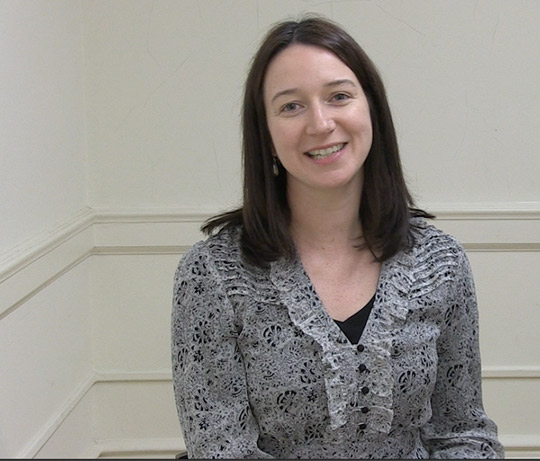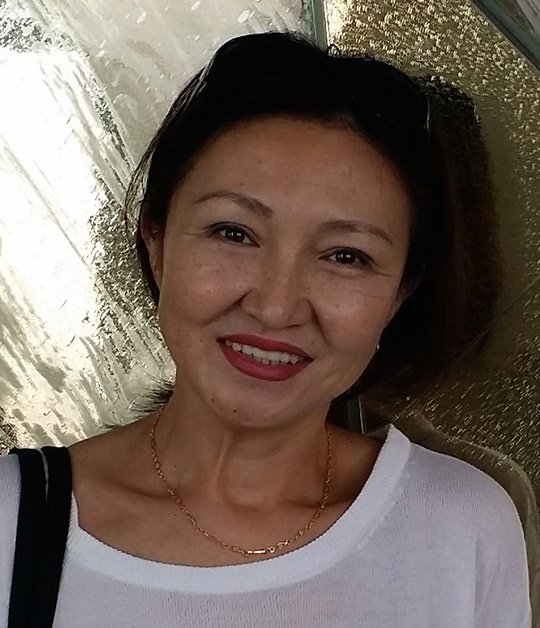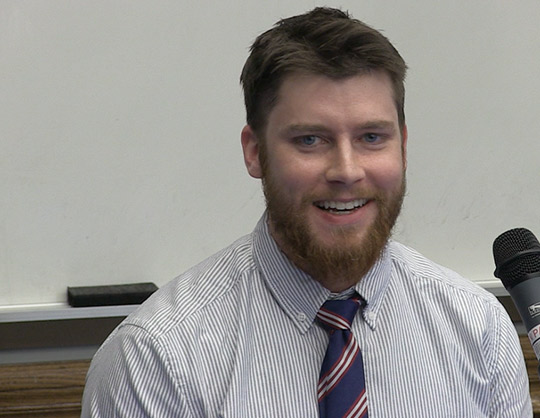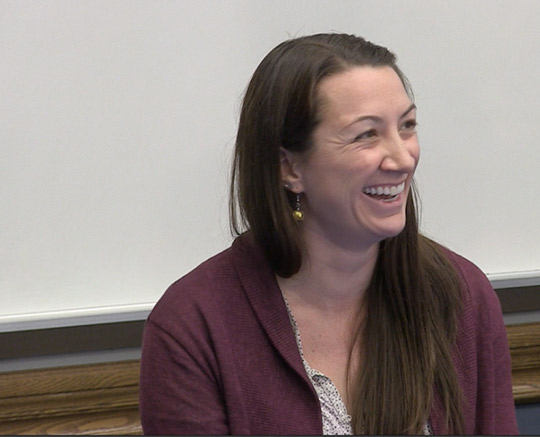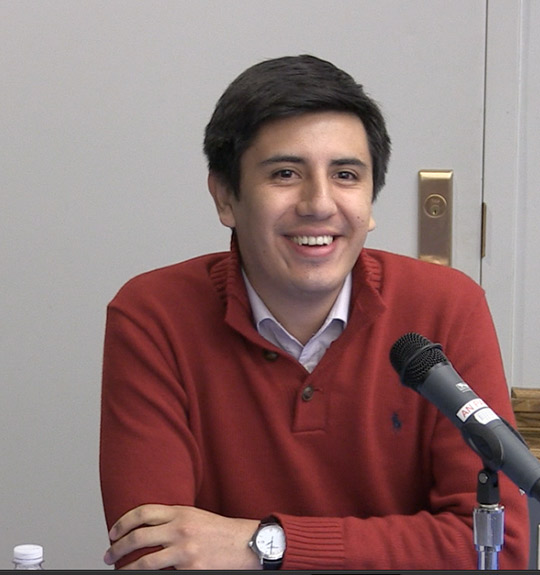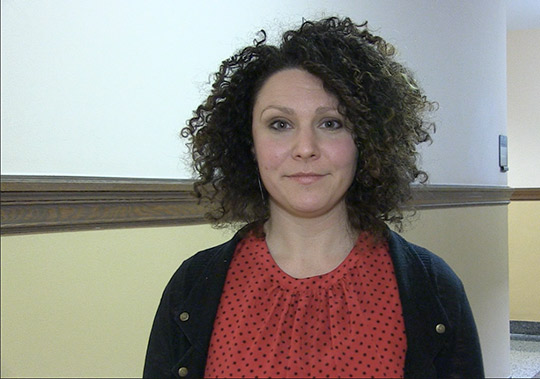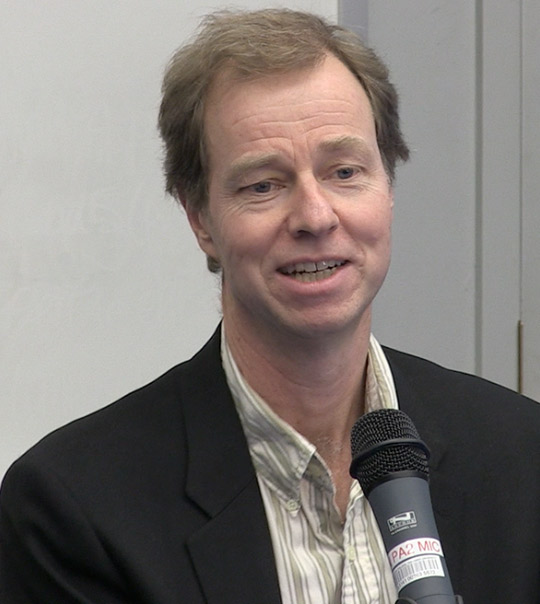TC's Fulbright Scholars Discuss the Benefits of Cultural Immersion
As a Fulbright student scholar in 2003, Matthew Stults-Kohlemainen, now a TC adjunct professor and post-doctoral fellow, conducted research on whether enhancing social support to mitigate depression can also improve the musculo-skeletal health of older adults. His country of choice, Finland, was an ideal location because the government periodically holds a gathering for all of the nation’s pairs of identical twins – a gold mine for scientists studying long-changes in physical and mental health.
In India in 2013, TC Fulbright scholar Meghan Chidsey, an anthropology doctoral student, studied girls’ boarding schools to learn how elite women’s education affects gender identity and women’s empowerment. The Fulbright program’s prestige opened doors to institutions that are typically wary of outsiders, Chidsey said. “It allowed me to have a great support system and gave me an access edge.”
Stults-Kohlemainen and Chidsey were among six TC Fulbright alumni who shared their experiences of the flagship U.S. educational exchange program at a panel discussion held by the College’s Office of International Affairs during International Education Week in November. They were joined by Sarah Trignano, a former student scholar in the Netherlands; Thomas Hatch, Associate Professor of Education and a former scholar in Norway; Oscar Ardila-Espindola, who spent 2012 at TC as a student scholar from Colombia; and Ailbhe Kenny, a current Fulbright scholar at TC who is from Ireland. The event was moderated by Professor John Allegrante, TC’s Fulbright Campus Representative, who was a Fulbright senior specialist from 2005 to 2010 and a Fulbright Scholar during 2007 at Reykjavik University in Iceland, where his research demonstrated the link between children’s health behaviors and school performance.
Trignano, a dancer who is now a masters’ student in applied physiology, said she used the Fulbright for specific professional training with Dutch contemporary dance companies. “You have to be very clear why that location is the one place on the planet” for the goal you want to achieve, she said. “Make a compelling argument to go to that place to launch the essential next step in your career.”
Other advice from the panel: think carefully about where to go, because some countries get much larger applicant pools than others; get strong letters of support and convincing invitations from host organizations; and, once embarked, “be knowledgeable about the politics,” making sure not to annoy either the U.S. or host country government.
The payoff, all agreed, is a broader perspective that can come only from immersion in another society.
Ardila-Espindola, a Colombian arts administration student who came to TC to learn how to build arts opportunities for students in Colombia, was initially shocked to find poverty in East Harlem as severe as any in his native country.
“When I saw that, even being close to an institution like Columbia University, people living in that neighborhood still did not have access to high-quality education, I understood that the real problem was not physical access but the mindset and the connections with insiders.”
The upshot: Ardila-Espinosa has added what he calls a “connectivity component” to the Bogota International Piano Festival, creating a series in which leaders of artistic institutions around the world videoconference with young students in Colombia. “I am working now toward building bridges between influential people around the world and talented Colombia students regardless of their social or economic backgrounds.”
Hatch said he was struck by the fact that in Scandinavian culture, there is no direct translation for “accountability.” “The closest word is ‘responsibility,’” he said. “Are you behaving in ways that reflect responsibility for the collective goals and norms we have established? And that directly connects to a question central to my work in the United States: beyond legislating accountability for individual performance, how do we develop a sense of collective responsibility for our education system?”
Trignano said that being in the Netherlands during President Obama’s 2008 election campaign, as well as comparing high-quality health care in Europe to the system at home, forced her to evaluate American identity. “It was very confronting to be called ‘Sarah the American,’” she said. “But it made me own all the things I love about being American.” – Siddhartha Mitter
Ensemble Learning
Ireland’s Ailbhe Kenny is studying the impact of visiting musicians in the classroom
Carnegie Hall, Lincoln Center, and the Philharmonic are three of the reasons why Ailbhe Kenny chose New York City as the site for her year as a Fulbright Scholar.
And not just for the chance to attend concerts. Jointly hosted by TC and New York University, Kenny, a Lecturer in Music Education at Mary Immaculate College of the University of Limerick in Ireland, is spending this academic year researching the ways in which visiting musicians from these three prestigious organizations work together with classroom teachers at three New York City public schools.
“New York has established models for world-class musicians visiting public school classrooms that have been doing it for a long time,” Kenny says. “It creates a very rich learning experience for me.”
Kenny traces her own music vocation back to New York City, where she spent part of her childhood and sang in the Little Gaelic Singers choir. Now, her study of the experience of New York City elementary and middle-schoolers will help shape exposure to music for children in Ireland, where she says the government is keen to build up partnerships between schools and arts organizations.
“It’s about people creating a musical identity, and that doesn’t have to be a concert pianist at Carnegie Hall,” she says. “The idea is people engaging in music for life.”
Kenny’s other projects also focus on the creative benefits of collaboration via music. She is finishing a book on what she calls communities of musical practice, in which groups of people come together around music-making or musical interests, and the kinds of participatory, collaborative learning that can ensue. Her research encompasses with a variety of music-making communities both on and off-line, from multiple genres, age-groups and backgrounds.
In New York, in addition to observing classroom sessions in three socio-economically diverse schools, Kenny is also interviewing musicians, teachers, and school and DOE administrators. Such collaborations can be a wonderful resource for schools, Kenny says, but ultimately their success is determined in the classroom, by the dynamic among musician, music teacher and students. Some residencies are more didactic while others are more collaborative and open-ended. Teachers vary in their confidence as musicians, while the approaches of visiting performers are shaped by the different philosophies of the institutions they represent.
“It’s generally assumed that musicians will influence teachers’ pedagogy, but I find that it works both ways,” Kenny says. “There’s potential for real pedagogical transformation.”
Beyond Teacher Pay
Increasing salaries hasn’t proven a panacea for Kyrgyzstan’s education woes. Farida Ryskulueva is studying U.S. schools for answers
At the end of 2010, teachers in the Kyrgyz Republic went on strike to protest wages that averaged about $30 per month. That figure was abysmally low, even in a nation that is among the poorest of the former Soviet states, and the impact on education quality was readily apparent: in the 2006 and 2009 PISA international comparisons, Kyrgyzstan had ranked dead last.
In response, the government tripled teacher pay, says Farida Ryskulueva, a lecturer at the Kyrgyz Academy of Public Administration who is visiting TC this year as a Fulbright Scholar – a strategy prompted by UNICEF studies in Kyrgyzstan, Mongolia and nine other countries led by TC’s Gita Steiner-Khamsi, Professor of Comparative and International Education. In Mongolia, this approach had led to dramatic improvement in academic performance, but the study in Kyrgyzstan identified some unanticipated adverse consequences.
“It was great to change the salary system, but not everything had been considered,” Ryskulueva says. With pay connected to hours worked, schools tried to reserve slots for incumbent teachers rather than hire new ones. As a result, teachers took on too many classes, stretching themselves too thin and teaching subjects beyond their expertise.
Ryskulueva’s conclusion: salary alone is not enough to produce quality teaching, particularly in a nation where class sizes are high, textbooks are old, scarce and expensive, and the money for greater investment simply doesn’t exist. “You still need to motivate teachers to teach better,” she says. “They didn’t consider this in the reform.”
How to accomplish that goal is the focus of Ryskulueva’s research during her Fulbright year.
“I want to investigate new approaches and interesting practices in how American schools improve or motivate teachers,” she says. She hopes to learn how some schools manage to build collaborative, positive cultures even when resources are scarce, and how teachers form networks across schools. What she finds out stands to have a direct impact back home where, as a professor in the national public administration academy, Ryskulueva supervises master’s degree students in educational management who are already in service as teachers, principals, and education administrators.
Moreover, before taking her current job, Ryskulueva was a top civil servant herself, with 17 years as an official in the Ministry of Education and Science, and she is keen now, she says, to support her former colleagues. “I have a very personal interest in suggesting to the government some ways to change.”
Published Friday, Jan. 23, 2015
